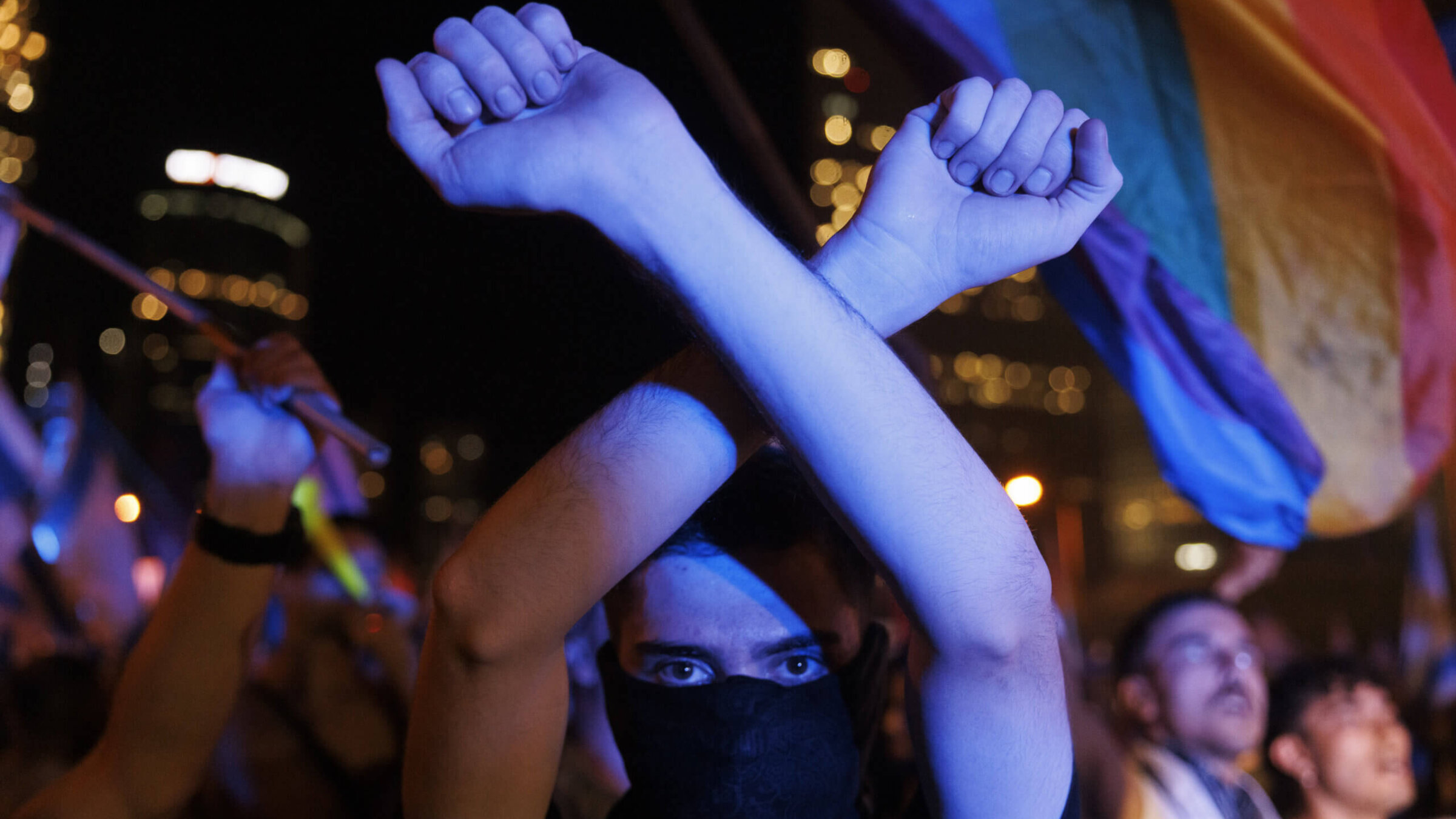What comes next for the protest movement in Israel?
Israelis are overwhelmingly against the judicial overhaul, but how far will they go to stop it?

Protesters during a demonstration against the judicial reform bill outside the Knesset, Israel’s parliament, in Jerusalem, Israel, on Monday, July 24, 2023. Photo by Kobi Wolf/Bloomberg via Getty Images
After the Israeli government passed the first legislation in its judicial overhaul package on July 24, the reactions were fast, furious and polarized.
The reasonableness standard bill’s passage — which blocks the Supreme Court from overturning government decisions it deems “unreasonable” — marks the “unilateral cancellation of the state of Israel’s democratic character,” opposition leader Yair Lapid declared. Justice Minister Yariv Levin, meanwhile, praised it as “an important bill,” while Finance Minister Bezalel Smotrich asserted that the government was finally “beginning to fix the justice system.”
Suffice to say that, despite the myriad prophecies swirling around, it’s not entirely clear what consequences this bill has in store for Israel’s democratic fiber. For anti-reform protesters, however, this was the crossing of a red line that for months they had worked to avoid.
After 29 consecutive weeks of demonstrations against the proposed reforms, they were forced to swallow a sharp dose of reality: Despite their immensely creative, passionate, inspiring protestations, Benjamin Netanyahu’s government has the numbers to pass any legislation it wants. And as evinced by the manner in which the bill passed, it is willing to do so without the widespread consensus the Israeli public so desperately needs.
The question for the protest movement’s leaders now is: What next?
Since the protests began in January, there was an implicit understanding in the movement that demonstrations alone would not be enough to halt the judicial overhaul or force the government into negotiations. Hence attempts to tank the economy, launch “days of disruption,” and constant threats to shut down the country and shirk reserve military duty.
But now that the government has demonstrated both a willingness and ability to shove divisive legislation down the country’s throat, protest leaders will have to reevaluate their approach to ensure a continuously electrified movement — particularly with the Knesset entering its summer break on Aug. 1 — that can thwart further dangerous judicial overhaul down the line. And this must all be achieved without further escalating tensions and stoking the flames of anger and hatred in a Jewish state where talk of civil war is terrifyingly common.
While it is possible that the movement will dissipate before the Knesset resumes in October, Haaretz’s Anshel Pfeffer believes it is unlikely. “The best thing the protest movement has going for it is the government, which is almost certain to give pro-democracy Israelis plenty of reasons for taking to the streets, long before the coalition gets ready for its next round of anti-Supreme Court legislation,” Pfeffer told me. “I don’t see the protest dying out or diminishing.”
Even so, protesters seem to recognize the limits of their actions up until now. Following the passage of the reasonableness bill, protest leader Moshe Radman announced, “in the coming days we will continue to intensify the resistance.” Crucially, he added, it will be “without violence.”
Radman’s words were vague, but one can begin to imagine what he envisions. First to come to mind is the issue of IDF reservists suspending their volunteer reserve duty. While Israel’s mainstream media (which is almost uniformly opposed to this government and its judicial reform) has knowingly exaggerated the scale of refusal threats, they have now reached heights that can no longer be ignored.
On July 22, the Brothers in Arms reservist group announced that more than 10,000 reservists will end their volunteer service if the government plows ahead with its judicial legislation. The next day, IDF Chief of Staff Herzi Halevi warned that the IDF’s unity had been “dangerously” harmed. What he said next could not be misconstrued: “If ours is not a strong and unified army, and if the best do not serve in the IDF, we will not be able to continue to exist as a state in the region.”
Perhaps little else can invoke fear after reading those words, but the protesters certainly have more tools at their disposal. Following the reasonableness legislation’s passage, the Israeli Medical Association announced a 24-hour general strike. And while the court forced the strike to end only hours after it began, the precedent it sets is clear and terrifying.
It’s unclear how Israel finds a way out of this crisis. Concerns back in January over dangerous changes to the legal system have now been trumped by fears that the very fabric of Israeli society is disintegrating. The coming months will likely be fraught with danger, and if no compromise is found before the Knesset reconvenes in October, there’s no telling how protesters will react.
While Radman’s insistence on non-violence is critical, he simultaneously claimed the government has lost the legitimacy to govern, calling it a coalition of “64 anarchists.” With government Knesset members fanning the flames of incitement and protest leaders willfully firing back, it’s unclear how Radman and his colleagues intend on keeping an intensified protest movement peaceful. Even if they do succeed, the damage inflicted on Israel by both sides is already palpable. The Jewish state — and Jewish people — can hardly afford for it to deteriorate again.
To contact the author, email [email protected].
















